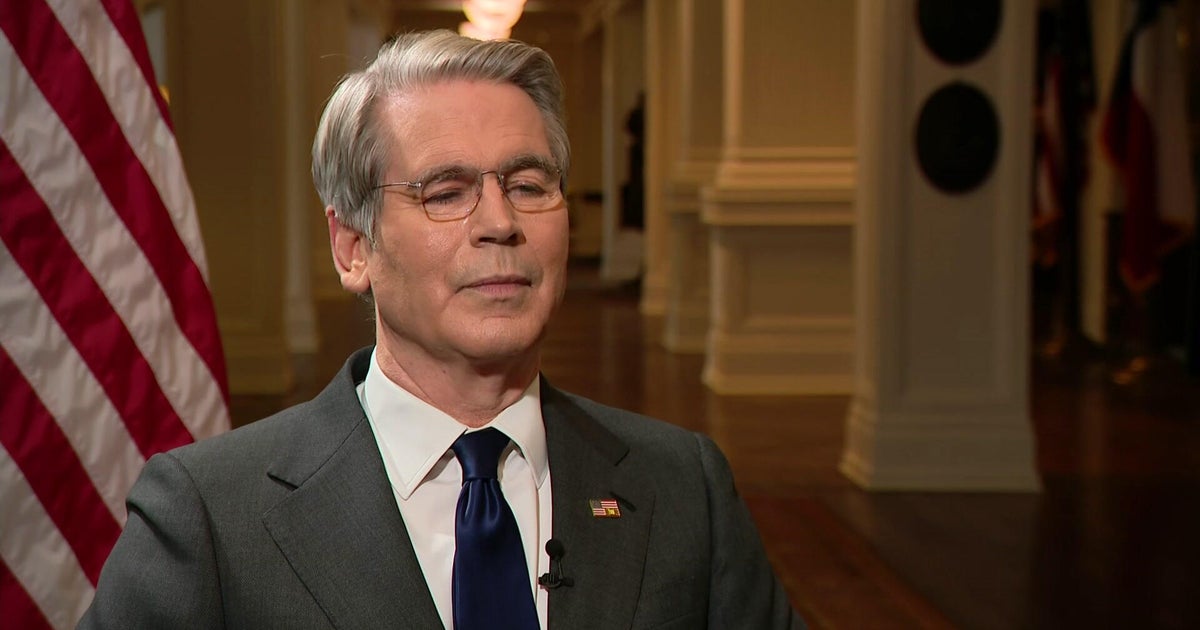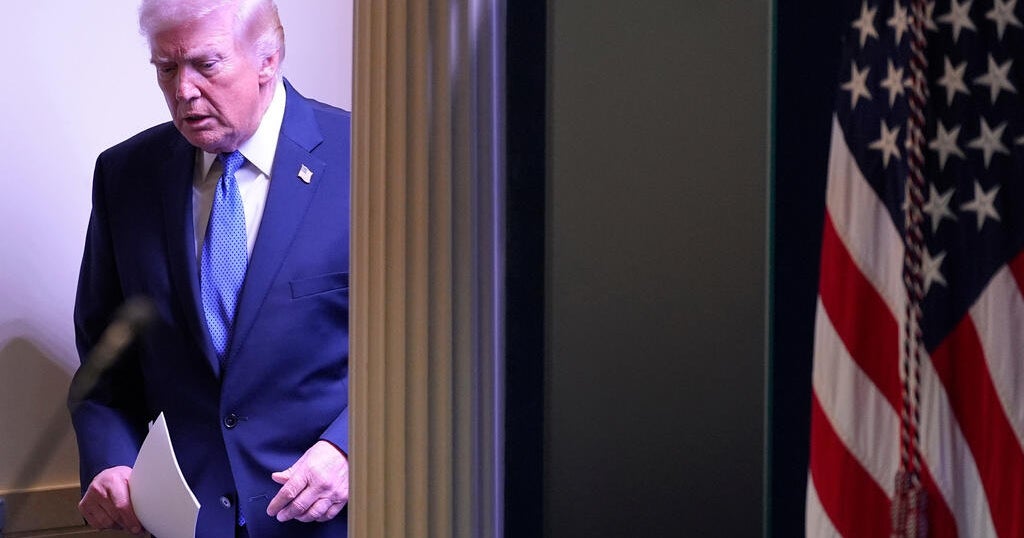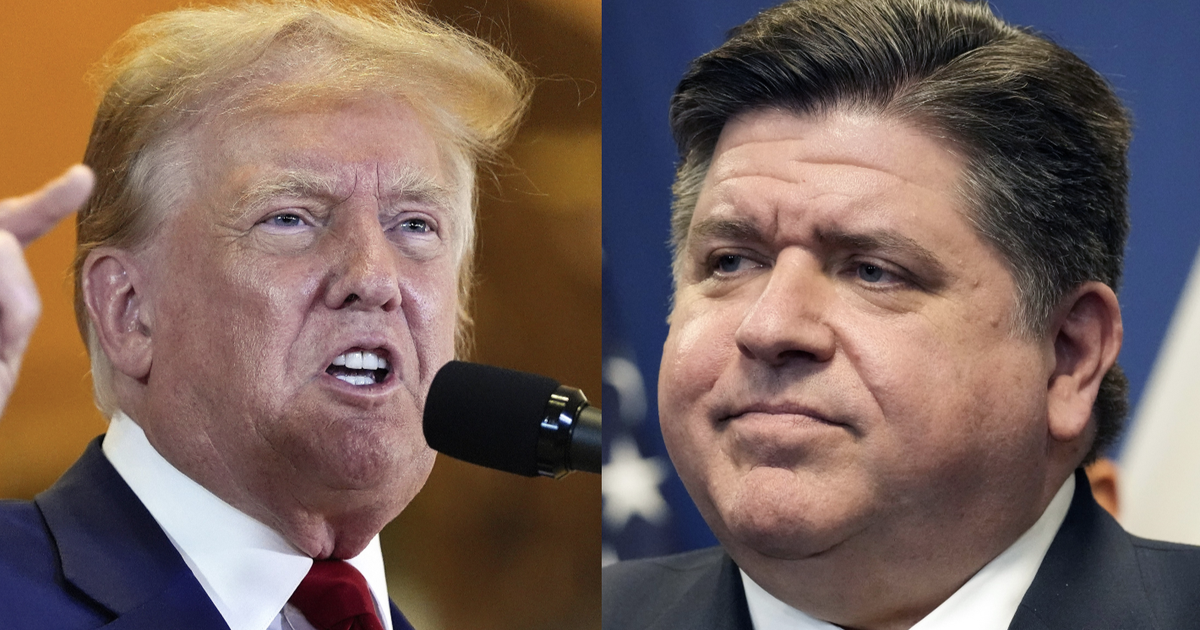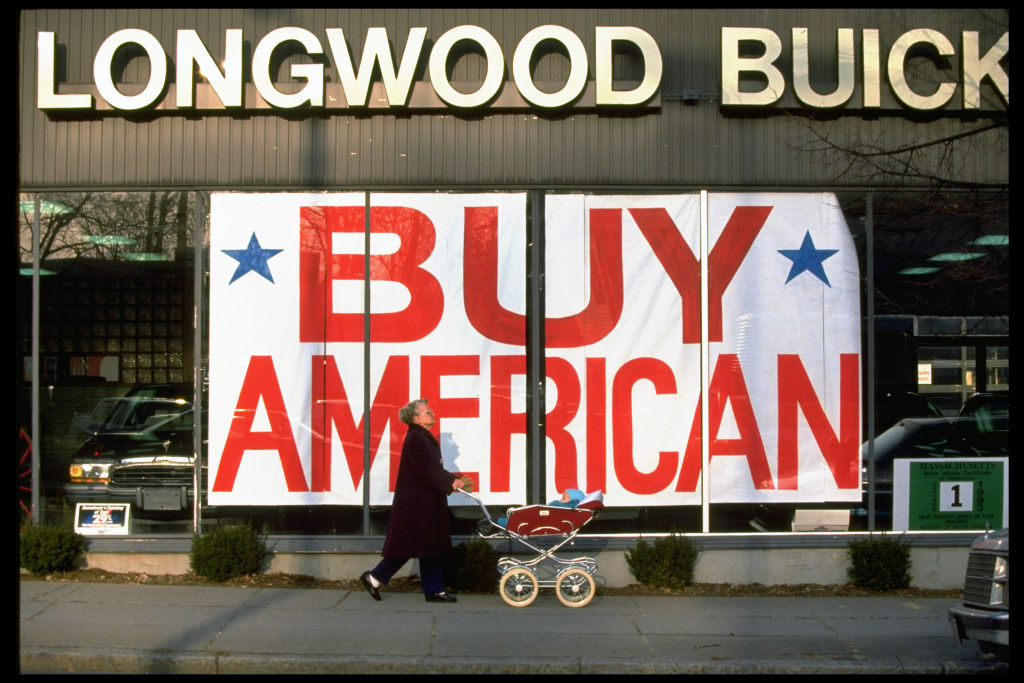Trump trade tariffs set to hit Europe as talks uncertain
There has been lots of press about the trade dispute with China, but the European Union also stands to be hit by tariffs. And EU countries make up America's second-largest trading partner. Indeed, more than $10 billion in trade activity across the Atlantic is at risk already.
The working deadline is May 1: That's when U.S. tariffs on imported steel and aluminum are supposed to hit countries not granted exemptions.
The broad tariffs were announced in early March and went into effect for China, Russia, Japan, Turkey, Taiwan and other exporters.
But some allies were given temporary exemptions and are waiting to hear whether they will be extended. On that list: Argentina, Australia, Brazil, Canada, Mexico, and the 28 countries in the European Union.
Commerce Secretary Wilbur Ross said over the weekend that some countries would receive permanent exemptions, but not all. Countries will also be asked to reduce the amount they export to the U.S., he said.
Some analysts suggest that the Trump administration's broad tariff threats are an effort to corral U.S. trading partners into a united front against China, which is accused of overproducing and dumping steel and of stealing companies' trade secrets. How broad the tariff exemptions turn out will be a good indication of the U.S.' strategy, said Benjamin Salisbury, a Washington policy analyst at B. Riley FBR.
"If they're relatively loose with the exemptions, it's a good indication they're trying to get the West on the same page to deal with China," he said. "If they're super strict and they're trying to prop up the steel industry, we could be on a long rough road."
So far, South Korea is the only country to receive a permanent out for steel, though it still faces the risk of tariffs on aluminum. Under a trade agreement reached in March, South Korea promised to reduce its steel exports by about 30 percent, double the number of U.S. cars it imports and eliminate some additional environmental testing requirements.
South Korea is the no. 3 exporter of steel to the U.S., according to research from FBR. (China is number 10.)
EU no-go on quotas
Quotas have become a key issue between the EU and the U.S. The European Union recently rejected a proposed 16 percent reduction in steel exports to the U.S. As the parties negotiate, "[t]he threshold of export reduction could be a sticking point," Salisbury wrote.
The EU exports about $7.7 billion worth of steel and aluminum to the U.S., the BBC reports. Some 320,000 workers across Europe depend on the steel industry, according to trade organization Eurofer. Tariffs would upend the relationships between European steel companies and U.S. manufacturers that use their products.
"If you're on the U.S. side and buy steel from a European firm, you're looking for a new supplier," said Emily Blanchard, an associate professor at Dartmouth's Tuck School of Business. "Maybe you maintain that relationship, but the terms have changed: there's a 25 percent tariff now, and some combination of the exporter and importer will have to come up with that money."
With imported steel costing more, domestic steel producers are also able to raise their prices. The added costs would trickle down to everyone who uses steel, regardless of where that steel comes from.
"It could be that, our little old town needs to rebuild a bridge," Blanchard said. In that scenario, "the taxpayers are going to get hurt to the extent they have to pay more for steel I-beams."
Tariffs and counter-tariffs
After being threatened with U.S. tariffs in March, the EU proposed retaliatory tariffs on $3.4 billion worth of U.S. goods, including orange juice, cranberries, jeans, motorcycles, tobacco and bourbon.
Those are pointedly aimed at the home states of Republican leaders, who have historically opposed trade barriers. Bourbon production is heavily concentrated in Kentucky, home state of Senate majority leader Mitch McConnell. Outgoing Speaker of the House Paul Ryan hails from Wisconsin, the headquarters of Harley-Davidson motorcycles.
Will the EU impose tariffs on May 2? "It's a real possibility," Salisbury said.
"Time is an element in negotiation," he added.
"You can know that counter-tariffs will hurt your political base, but a lot of times something that has happened feels different than something you know will happen."



